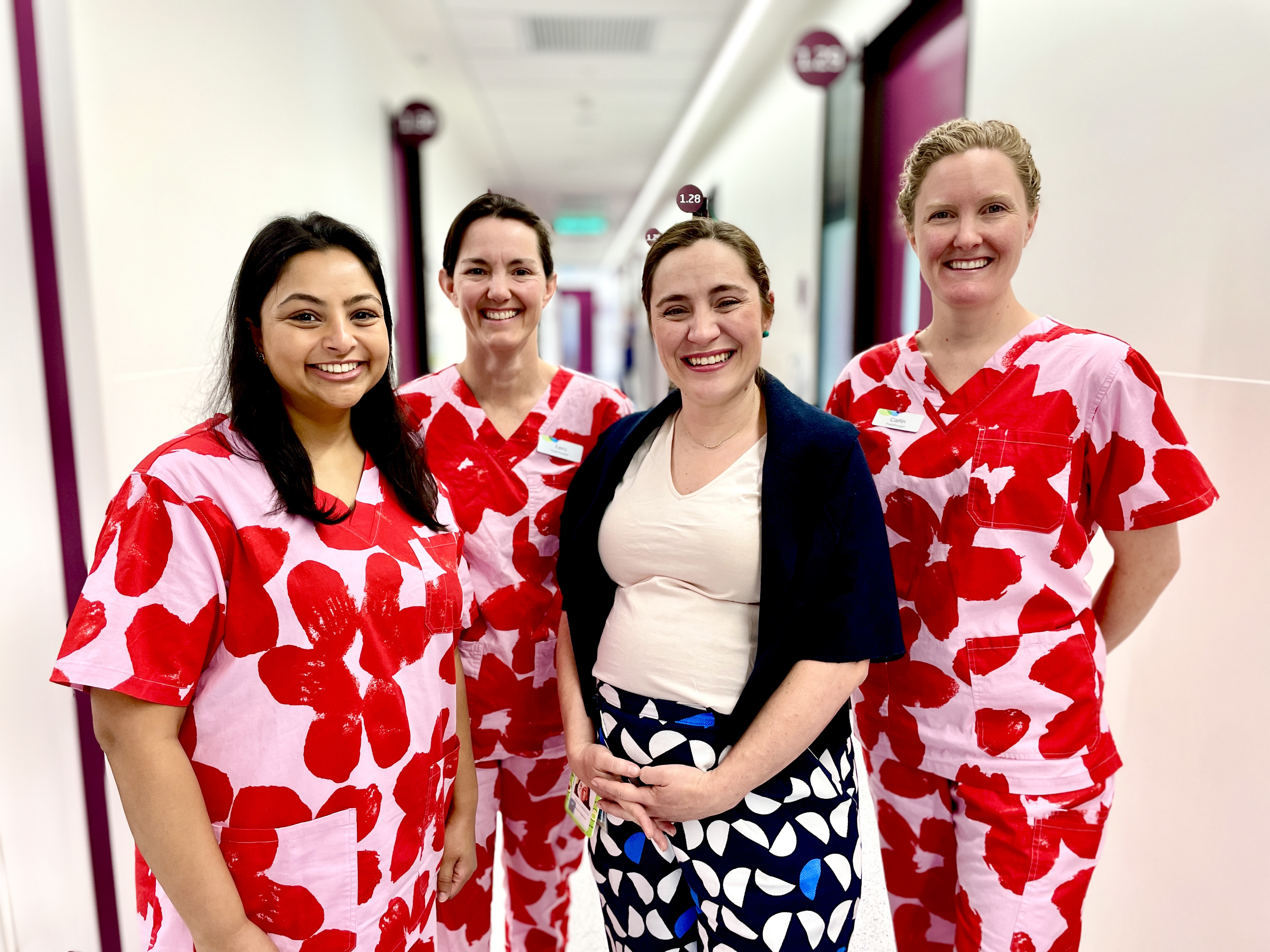Our innovative physiotherapist-led clinic provides pessary management to women with pelvic organ prolapse (POP) and it is the first of its kind in a public hospital in Australia.
In the POPPY pessary clinic at Sunshine Hospital women’s health physiotherapists are fitting pessaries and managing patients' care. 
Between 20-40 per cent of women will experience pelvic organ prolapse (POP) or urinary incontinence (UI) in their lifetime.
These two conditions are caused by factors that weaken the pelvic floor, such as pregnancy, childbirth and ageing.
They can have a significant impact on women’s physical, sexual and emotional health and wellbeing.
Part of initial treatment involves the use of pessaries to provide relief of symptoms without surgery.
In the past, this type of pessary care was only provided by urogynaecology and gynaecology doctors.
Our women’s health physiotherapists underwent a pessary training program so that they could fit a range of pessaries, as well as educate and review patients.
The clinic, also known as the Advanced Practice Physiotherapy Led Pessary Clinic, runs alongside existing urogynaecology clinics, allowing multi-disciplinary team collaboration and support.
In just 18 months, the results have been impressive.
The clinic has improved access to regular review appointments for women managing these conditions and decreased the risk of pessary related complications.
Hundreds of women have attended the clinic so far and the feedback has been positive from patients and their families.
“The physio was very informative, professional, respectful and friendly. Thanks so much, I feel like a new woman,” said one of our patients.
Another told us: “I have received the most excellent care and attention I could have.”
We also received an email from a partner of a woman who attended:
“I am writing to express my sincere gratitude for the exceptional care and attention you have provided my wife during her visits,” they wrote.
“We genuinely appreciate the time and effort you have taken to ensure she feels comfortable and well-informed. It’s a relief to know she is in such capable and caring hands.”
Around 90 per cent of women seen in the clinic have been managed effectively, without requiring medical escalation.
Women attending Western Health (WH) are culturally diverse.
The team developed pessary education information in the five most common languages spoken by Culturally and Linguistically Diverse (CALD) populations who attend WH: Vietnamese, Macedonian, Simplified Chinese, Burmese, Arabic.
Our clinic has improved the capacity of our doctors to see new patients and to care for those requiring surgical interventions.
We are proud that even more Australian women could soon benefit from this model of care with the team sharing their success with similar public hospital physiotherapy services in Victoria, Tasmanian and New South Wales.
